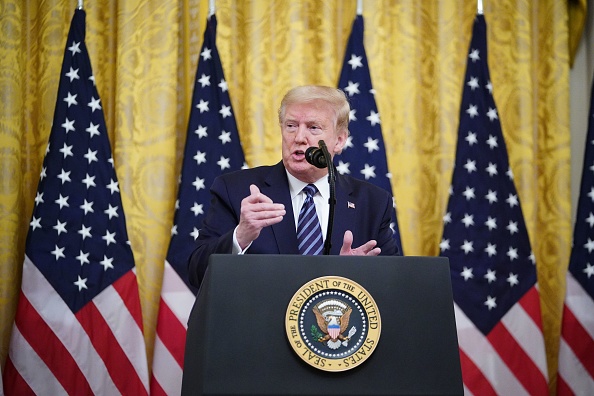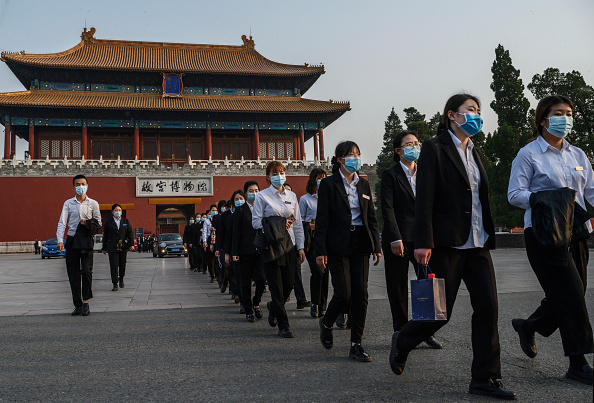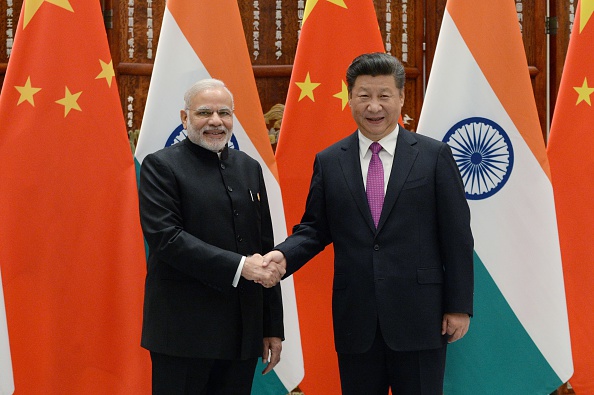
 Retaliatory Actions
Retaliatory Actions
The Trump administration's rhetoric is becoming increasingly antagonistic towards China over its handling of the coronavirus pandemic. Secretary of State Mike Pompeo ramped up criticisms of China this week for allegedly hiding information about the origin of the virus, thereby allowing it to spread to other countries. Senior Advisor to President Trump Jared Kushner says the president has ordered an investigation into the origins of the virus, while Trump claims he has seen evidence that the virus originated in a lab, contradicting the U.S. Office of the Director of National Intelligence, which says there is no such evidence.
Meanwhile, Trump continues to berate the World Health Organization (WHO), calling it "literally a pipe organ for China" and further inflaming the division between the U.S. and the WHO, after Trump announced in April that the U.S. would halt funding for the organization. The U.S. president suggested Washington could take action against the WHO: "We're coming up with a very distinct recommendation," Trump said. "We're not happy with it."
President Trump also said he believes China's handling of the coronavirus pandemic is proof that Beijing "will do anything they can" to prevent him from being reelected this coming November. Rebutting that claim, Foreign Ministry spokesman Geng Shuang said in response, "we have said many times that the US election is an internal matter for the United States, and China is not interested in intervening."
"What has particularly dismayed the Chinese is a smear campaign against China by some American politicians and high-ranking officials, who try to shift the blame for their own underestimation of the threat, their slow response and the consequences," writes Fu Ying, Chair of the Center for International Security and Strategy at Tsinghua University. Read her full article on China-US Focus.
 Pandemic Economy
Pandemic EconomyWhile the virus continues to increase its spread in the U.S., Beijing is projecting confidence in its handling of the coronavirus pandemic, and has re-scheduled its National People's Congress meetings for May 22, while also easing quarantine restrictions in the capital. The ceremonial congress will be largely a symbolic event, and the gathering is expected to showcase China's preparedness for reopening up the country and reinforce national unity. The announcement comes as many countries continue to criticize China for its early handling of the virus.
Adding to signs of confidence, China's factories, schools, and offices are slowly returning to normal, but the economic impact of the shutdown has Chinese consumers anxious about spending, thereby driving down demand. Manufacturing export demands have also slumped, evidenced by two sets of data published this week. While China may be ready to get back on its feet, the rest of the world might not buy enough of China's exports to return its production back to pre-pandemic levels, which may be an obstacle for Beijing to overcome down the road. As China, the U.S., and the rest of the world work to overcome the current pandemic, former U.S. Ambassador Carla A. Hills writes that the world's two largest economies should strive to cooperate to improve global and economic health. Read Ambassador Hills' full exclusive commentary on China-US Focus.
 Clash of Titans
Clash of TitansIndia is the latest country to reevaluate its economic ties with China, partly out of anger over its perceived mishandling of COVID-19. Although India's economy has yet to be deeply affected by the coronavirus, officials in New Delhi are preparing for the future. As such, India has restricted Chinese investment into the country out of concern for "opportunistic takeovers" of Indian companies, as the coronavirus threatens the health and economy of the world's second most populous country. So far, India has only reported 37,257 cases of the virus and 1,223 deaths, although the country's testing capacity has been incredibly limited, at 902,654 samples tested in the country of 1.3 billion, as of Friday, May 1, 2020.
India also canceled orders for more than half a million antibody testing kits, after the Indian Council of Medical Research found that the tests show "wide variation in their sensitivity, despite early promise of good performance." China responded that "it is unfair and irresponsible for certain individuals to label Chinese products as 'faulty' and look at issues with preemptive prejudice." The uptick in tensions come as the two countries seem to have just started cooling down their longstanding rivalry with a formal summit meeting and $22 billion in trade agreements late last year.
Prepared by China-US Focus editorial teams in Hong Kong and New York, this weekly newsletter offers you snap shots of latest trends and developments emerging from China every week, while adding a dose of historical perspective.
- 2020-04-24 Sinking Perceptions
- 2020-04-18 Pandemic World
- 2020-04-11 The Long Road Back to Normalcy
- 2020-04-03 Shifting Gears
- 2020-03-28 Cooperation or Confrontation
- 2020-03-20 World in Turmoil
- 2020-03-13 Global Emergency
- 2020-03-06 Global Strains
- 2020-02-28 Coronavirus Gone Global
- 2020-02-22 The Virus Continues
- 2020-02-15 Asserting Control
- 2020-02-08 A Novel Outbreak
- 2020-01-31 Global Health Emergency Declared
- 2020-01-24 Celebrations Grounded
- 2020-01-17 Signed, Sealed, Delivered
- 2020-01-10 Ink the Deal
- 2019-12-20 A Level Playing Field
- 2019-12-13 It’s a (Limited) Deal!
- 2019-12-06 An Arbitrary Deadline
